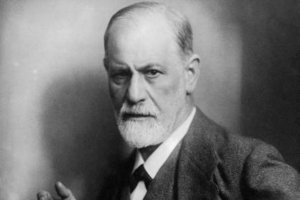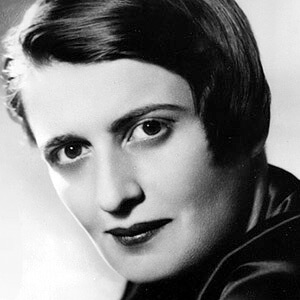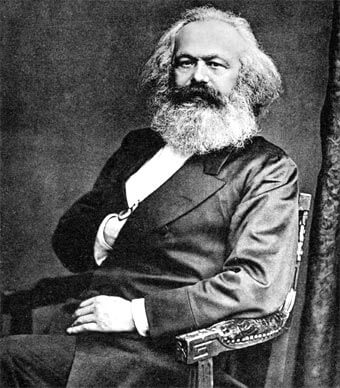Freud and Other Atheists Who Changed the World

The relationship between man and God, or the complete absence of God, is a subject that has produced many of the most beautiful stories and wildest controversies of all time. When people are asked about the idea of God, they tend to label themselves as either atheists, agnostics, or believers.
The idea of God, which has been defined and promulgated by most monotheistic religions of the world, has been adopted by millions of people, and a large number of societies have been organized around it. In other cases, skepticism has caused people to deny not only the idea of God, but also other intuitive or energetic concepts like the law of karma or the law of attraction.
Being an atheist doesn’t make you a better or worse person
Beyond whether you received a religious upbringing or not, some people are believers and some people aren’t, just like the great actor Fernando Fernán Gómez said. Your belief system doesn’t make you a better or worse person.
In a recent experiment designed by Jean Decety, a neuroscientist and psychologist from the University of Chicago, with children between ages 5 and 12 in six culturally diverse countries (Canada, the US, Jordan, Turkey, South Africa, and China), they found that students who aren’t raised with religious values in their families are more generous when it comes to sharing their things with other children who they don’t know. Curious, to say the least.
“My atheism leaps to life when private belief becomes a public matter, when in the name of a personal mental pathology we organize a world for others. For between personal existential anguish and management of the body and soul of our fellow human beings, there exists a whole world in which those who profit from human anguish lurk in concealment.”
-Michel Onfray-
Throughout history, numerous people have defined themselves as atheists firmly and with conviction, even though they risked retaliation. They simply expressed their beliefs and their way of perceiving human social relationships freely and from a radically different perspective.
Let’s take a look at a few of the most famous and controversial atheists:
Ayn Rand
Marxist thought is often seen as the most antagonistic way of understanding society with regard to religion. The creator of “objectivism” was opposed to both ideologies, arguing that for anyone who aspires to be different, following ideas like religion or communism was disastrous.
“Actually, if I can sum up my attitude on the question of God, it’s this: from all I can gather, the definition of God is ‘That which the human mind cannot grasp.’ Being a rationalist, literal-minded and believing that it is a moral obligation to mean what you say, I take the persons who made the above definition at their word, I agree and obey them: I don’t grasp it.”
-Ayn Rand-

Ayn Rand exhibited an agnostic neoliberal philosophy that has been very well-accepted by some intellectual and artistic circles, who longed for this individualist ideology to be explained in a deeper way. Even though she contradicted herself throughout her life on some social and political matters, she was steadfast in her atheism until her death.
Albert Einstein
If there’s been one person who was questioned about whether or not he supported the idea of God, it was this renowned scientist and creator of the theory of relativity. Einstein was a convinced atheist, even though in reality he declared himself as agnostic in public in an attempt to deal with academic hostilities.
He wasn’t interested in religion at all, and the concept of God was not central in his theories or in his life. In one of his declarations, in response to the huge interest in knowing his opinion on the matter, Einstein explained that for him, if God existed it would be very similar to what Spinoza described: an all-encompassing God of non-dualistic nature that completely contradicts the conventional idea accepted by most people who follow a monotheistic religion.
Hypatia of Alexandria
Hypatia was probably the most important ancient philosopher, along with Aspasia and Hipparchia. Her figure has been ostracized due to the concealment of her enormous influence on the history of different sciences that were just beginning to develop. It was her condition as a woman and an agnostic that made this happen.

She wasn’t committed to the religious events that occurred in her city. These events led to her horrible murder by a religious hierarchy, a hierarchy that saw an enemy they feared in her mathematical, astronomical, and philosophical concepts. Sadly, her death was a prelude to the religious control that existed during the Middle Ages.
Karl Marx
Karl Marx was a German intellectual of Jewish ancestry who, along with Friedrich Engels, founded scientific socialism, modern communism, Marxism, and historical materialism. The work of this philosopher is impossible to synthesize, but it’s clear that he directly rejected the idea of God, religion, and the existence of social classes.
“Man is dominated by the product of his own head as he is dominated in capitalistic production by the product of his own hand.”
-Karl Marx-

Although these ideas seem unrelated, when elaborated, their perfect logic and coherence is found: to be more free, society should try to be as egalitarian and just as possible, something that is achieved through action and social reason. If you abandon this reason and subscribe to ideals like God or money as a way to solve problems, society and its organization collapse.
Sigmund Freud
Today, in the world of psychology, Sigmund Freud is equally venerated and hated. And still others have a moderate attitude towards this controversial neurologist, recognizing the work he did in his time, but believing that his influence on psychiatry today is completely disproportionate, and that only a tiny portion of his theories have been supported by science.
“It would be very nice if there were a God who created the world and was a benevolent providence, and if there were a moral order in the universe and an after-life; but it is a very striking fact that all this is exactly as we are bound to wish it to be.”
-Sigmund Freud-
Thus, we could define Freud as a lover of the study of human beings, someone who constantly sought the reasons behind complex adult behavior, insistent upon providing a universal and beautiful explanation of our most intimate and subjective worlds.
For Freud, the idea of God had no place in explaining complex human relationships, and represented a regression in maturity and commitment. To him, it involved a personal failure to provide truly satisfactory and useful answers to the enigmas of our history.
This text is provided for informational purposes only and does not replace consultation with a professional. If in doubt, consult your specialist.








